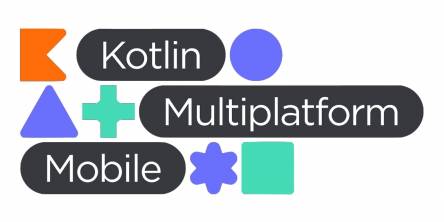Advantages and Applications of AI in Cloud Computing

The rapid evolution of technology has empowered humanity with countless avant-garde tools and solutions. Among these many wondrous technologies and solutions, two names have not only carved quite the niche for themselves but have been deemed proper rockstars in the business world Artificial Intelligence (AI) and cloud computing have ushered in a new era of technological innovation. Combining the technologies transforms how businesses process data, make decisions, and drive efficiencies. As AI's capabilities expand, its integration with cloud computing creates a synergy that enables organizations to harness the immense power of AI algorithms, data analysis, and machine learning on a scalable and accessible platform.
Now, individually, their benefits and immense potential are known well enough. But what about bringing AI to the mix in cloud computing implementation? This article delves into the dynamic fusion of AI and cloud computing, unveiling the benefits and possibilities with use cases that arise at the intersection of these two groundbreaking technologies.
What is AI in Cloud Computing?
AI in cloud computing refers to the integration of, you know, AI technologies and capabilities with cloud computing services. In this union, cloud computing offers on-demand access to computing resources such as storage, servers, networking, software apps, and databases over the internet. At the same time, AI brings in intelligent systems that can execute tasks that would otherwise need human intelligence and intervention.
AI in Cloud Computing: Benefits
- Reduced costs: AI can help to reduce costs in cloud computing in several ways, including through shared resources. Because cloud providers use shared infrastructure, resource use is optimized and costs for individual users are reduced. Furthermore, most cloud computing platforms use a 'Pay-as-you-go' model, allowing users to pay only for the resources they use. This primarily benefits AI apps that usually need significant computing power and storage.
- Automation: Once again, automation is also a multi-faceted benefit of integrating AI in cloud computing. For starters, AI can be integrated into cloud-based automation tools, automating repetitive and mundane tasks that do not necessarily need human intervention. AI can also be used to analyze data for patterns and trends, thus freeing the IT staff to focus on more strategic aspects of their job. This can also help to improve the efficiency and cost-effectiveness of cloud computing.
- Data management: Yet another compelling benefit of the union of AI and cloud computing is data management. Case in point: cloud providers already have robust security measures to safeguard data from unauthorized access and ensure compliance with data privacy regulations. AI can be used to further fortify these measures by proactively identifying and mitigating security threats.
AI in Cloud Computing: Use Cases
- Cognitive cloud computing: A relatively recent type to emerge on the scene, cognitive cloud computing is a type wherein AI is leveraged to deliver user insights and recommendations. Besides that, it can be used for tasks like fraud detection, risk management, customer service, etc.
- Chatbots: AI-driven chatbots are practically everywhere now! And it is a good thing, too; after all, these mighty tools serve to ameliorate customer service and gather data. Cloud platforms can store and analyze the data gathered by chatbots, whereas cloud services can channel said data to the right apps and services for further processing.
- Business intelligence: A rather crucial application of AI in cloud computing is for BI and analytics. In cloud computing, AI enhances data analytics by offering advanced analytics capabilities, such as predictive analytics and data visualization. This means that organizations can leverage AI in the cloud to analyze humongous datasets in real time, glean insights, and make data-driven decisions much more efficiently.
As AI technology continues to evolve in the years and cloud computing becomes more sophisticated, we can rest assured that cloud computing implementation will become even more innovative and impactful.
Similar Articles
In today's technologically advanced landscape, understanding heat distribution is critical for enhancing efficiency and safety across various sectors. Infrared thermography, a pivotal imaging technique, has revolutionized how professionals view and analyze thermal performance.
In this digital age, there are many options available for marketing, but the one that stands out as one that can transform the marketing realm is programmatic connected TV (CTV). The programmatic CTV approach for advertising shows the changing trend in how brands would like to connect with their audience.
PHP has a dominant market position, with over 79% of websites powered to some degree. Developers majorly utilize organized and leveled PHP basic functions, known as PHP frameworks, to create flexible output.
The nonstop hum of machines around us, from the humongous industrial complexes to the processors within the gadgets, shapes our everyday lives. These mechanical advancements have become essential, driving everything from fundamental necessities to our vehicles, airplanes, and so forth.
New methods of managing a Pilate business are transforming the way studios operate. It simplifies routine tasks and helps fitness businesses to grow and facilitate their customers in various ways.
Discover if the S23 Ultra case is compatible with the S24 Ultra. Get insights on fit, protection, and functionality in this comparison.
In the era of astoundingly quick technological progress, organizations are increasingly feeling the need to adjust to the evolving market demands and their requirements by embracing digital transformation
With the rise of mobile devices and the ever-growing demand for cross-platform solutions, businesses are constantly seeking efficient ways to develop applications that can be used on multiple platforms. This is where Kotlin Multi Platform comes into play. Kotlin Multi-platform is a versatile technology that allows developers to write code once and deploy it on various platforms such as Android, iOS, and web.
Discover reliable network cabling solutions ensuring seamless connectivity for remote work. Enhance productivity with consistent connections anywhere.









